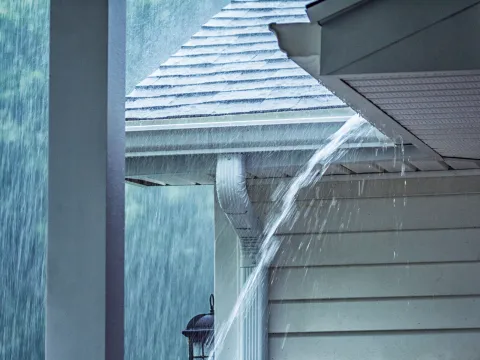- AdventHealth

Landslides — the downhill movement of earth and debris — are rare, but can happen in any state at any time of the year. These disasters happen when a weather event like heavy rain or an earthquake loosens up soil and rock on a hillside. The loosened earth may move quickly or slowly, and can destroy everything in its path.
Though landslides, like all natural disasters, are unpredictable, you can become more familiar with these events and have a disaster plan in place to help keep your family safe. Learn more about landslides and what to do when they happen.
Before a Landslide
Know Your Area’s Risk for Landslides
You can’t predict big rainfall or snowmelt, but you can learn about your area’s risk for landslides. Landslides are more likely to happen in places where they’ve happened before. If your area has experienced landslides or avalanches in the past, you should be prepared since it’s likely to happen again.
Prepare a Landslide Disaster Plan
When a landslide happens, you need to evacuate quickly. Having an evacuation plan that you’ve practiced with your family will help you act fast when every minute counts. You should also be familiar with your area’s evacuation routes to help your evacuation go smoothly.
Have an emergency preparedness kit ready. This kit should be easy to grab quickly or should stay in your car’s trunk (or both). Your kit may include:
- First aid kit
- Flashlights and batteries
- Non-perishable snacks
- Water
Update your supplies every year to ensure they’re working and ready if and when you need them.
During a Landslide
Know the Warning Signs
If you’re having a major, sudden snowmelt or heavy, pounding rain, you may be at risk for a landslide. Keep an eye on hilled areas that are more likely to fall, as well as any streams or creeks near you. If the water increases suddenly or goes from clear to muddy, a landslide may be on its way.
You can also listen for sounds of a landslide, including cracking trees, rushing water, rumbling or the sounds of rocks hitting each other. Listen to the radio or news to stay on top of the latest weather.
Evacuate Immediately
If you know a landslide is happening, evacuate immediately. After you’re on the road, another family member can call and warn neighbors and friends. You can also find your nearest shelter by texting SHELTER + your ZIP code to 43362 (4FEMA).
Be especially careful when driving. Landslides can block roadways or sweep away pavement. Keep your eyes on the road and watch for debris.
If you’re stuck in the path of a landslide, move uphill as quickly as possible.
After a Landslide
Wait for the All Clear
Don’t return to the area where a landslide happened until authorities tell you it’s safe. These areas are more likely to experience a slide again immediately after an event. Flooding is also more likely, so seek shelter on higher ground.
Listen to emergency broadcasts and pay attention to authorities. Focus on helping your neighbors and family as much as you can, but don’t get in the way of emergency professionals. You can also help authorities by reporting any dangers you see, such as:
- Broken power lines
- People in need of rescue
- Ruptured gas lines
Reclaim the Land
When you can return home, replant the land that’s moved as quickly as possible to help prevent erosion and future events. A geotechnical expert can give you landscaping advice to reduce your land’s risk for landslides.
Know Where to Get Emergency Care When You Need It
If you or a loved one are injured in a landslide, it’s important to know where the nearest emergency department is located. At AdventHealth, our emergency care teams are ready to help you. Find the closest AdventHealth emergency department to your home.


